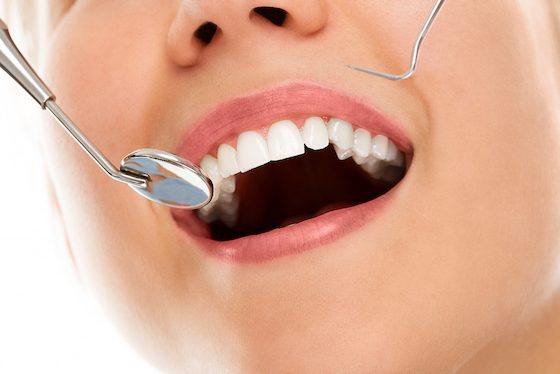Gum Treatments
Scaling and Root Planing

Gum Treatments Melbourne CBD
Gum diseases are treated in various methods based on their severity, how you responded to previous treatments, and your overall health.
Treatments ranging from non-surgical to surgical procedures will be prescribed and discussed following a complete assessment.
Non-surgical methods control bacterial growth. The soft tissues that support your teeth are restored through surgical treatments.
How Treatment Can Aid in the Reversal of Gum Disease
Gum disease is simpler to reverse the earlier it is discovered and treated. In the early stages of gingivitis, improve your oral hygiene practice and get professional dental cleanings to eliminate built-up tartar along the gum line.
However, when periodontitis has developed, your dentist’s skilled treatments are the only way to reverse the damage and save your teeth.
Without treatment, gum disease will cause teeth to loosen as the periodontal ligaments that hold them in place deteriorate. Gum disease is irreparable at this stage, and tooth loss is almost certain.
Benefits of Deep Cleaning and Root Planing Treatments
Your dentist will most likely prescribe a thorough cleaning procedure if you’ve just been diagnosed with gum disease.
This treatment, also known as scaling and root planing, removes plaque and germs from the crevices between the gums and the teeth. Your Melbourne CBD dentist will use a special instrument to remove plaque from the crown of your tooth down to the root.
Scaling and root planing are quite efficient at reducing gum disease inflammation.

The procedure is frequently used to:
- Prevent gum disease with a deep cleaning by helping to eliminate plaque that can cause gum disease in the long run.
- Prevent other health problems. Plaque that causes gum disease can move through the circulation, putting patients at a higher risk of getting heart disease and stroke.
- Defend your teeth from the bacteria that cause gum disease. Gum disease can cause deep pockets to grow between your teeth and gums. Eventually, these pockets peel away from the teeth, resulting in tooth loss.
- Remedy for persistent foul breath. After a skilled thorough cleaning treatment, bad breath can be significantly decreased.
Procedure for Scaling and Root Planing

Scaling and root planing clean the teeth and roots by removing plaque, hardened tartar, and stains.
The following steps are involved in scaling and root planing:
1. Administration of Local Anaesthesia
Scaling and root planing necessitate the use of a local anaesthetic. This medicine relieves pain and prevents bleeding by stabilising the membrane.
A local anaesthetic is the most prevalent minorly invasive dental treatment. A dentist injects the medicine into the mouth, numbing the region to be treated.
After about five minutes, you’ll experience a momentary loss of sensation. You will be awake and alert during the process, but there will be no discomfort. You may notice some pain at the injection site during and after therapy.
2. Scaling
Plaque and calculus are removed during this procedure, such as under and between the gums, at the base of tooth crowns, and near the tooth roots.
Either manual or ultrasonic scaling equipment can be used. Both methods are excellent at removing plaque and hardened tartar.
3. Root Planing
The dentist cleans deep behind the gums to eliminate plaque and tartar accumulation on the roots of teeth where the infection has impacted the bones during root planing.
4. Post Surgery
After the operation, you’ll most likely feel some soreness. Your dentist cleanses the area after the procedure to eradicate any bacteria that may have remained.
They will next apply pressure to ensure that the gum tissue grows properly. Properly healed gums look well-adapted, firm, and formed regularly.
Gum Surgery
You may require more comprehensive treatment, such as gum surgery if you have serious gum disease. In certain circumstances, the damaged tooth must be removed.
If you have surgery or root planing, your dentist may administer antibiotics. If this is necessary, they will let you know.
A healthy oral hygiene program can prevent gum disease in certain cases.
Good oral hygiene requires:
- brushing your teeth at least 2x daily with a soft brush
- flossing every day
- eating a balanced diet
- avoiding tobacco
- seeing your dentist regularly
Your Melbourne CBD dentist will explain the process and how it is carried out.
Long-Term Outcomes of Gum Disease Treatment
Understanding what to expect in the long term after undergoing gum disease treatment is an important part of your journey to better oral health.

Here’s what you can anticipate:
1. Treatment Expectations
After undergoing the suggested therapy for gum disease, such as gum surgery or scaling and root planing, it’s critical to realise that results might not appear immediately. Healing takes time, and the full effects of the treatment may not be immediately apparent. On the other hand, your gums’ general health and oral hygiene should gradually improve.
2. Potential Benefits
By addressing gum disease early and undergoing appropriate treatment, you’re taking proactive steps to preserve your oral health and potentially avoid more severe complications. Over time, you can expect benefits such as reduced inflammation, improved gum health, and stabilisation of any gum recession or pocketing around your teeth. This can help prevent further damage to the supporting structures of your teeth and reduce the risk of tooth loss.
3. Prevention of Complications
One of the key long-term goals of gum disease treatment is to prevent the progression of the disease and minimise the risk of complications. In addition to severe consequences like tooth loss and bone loss, untreated gum disease can also cause systemic health issues like diabetes difficulties or heart disease. By effectively managing your gum disease now, you’re protecting your smile and safeguarding your overall health in future years.
4. Follow-Up Care
It is crucial that you continue to see your dentist or dentist regularly after finishing your initial course of treatment. During these consultations, we can monitor your development, evaluate the efficacy of the therapy, and alter your oral hygiene regimen or continuing care plan as needed. Consistent follow-up care is essential for maintaining the results of your treatment and preventing gum disease from recurring.
Gum Treatments in Melbourne CBD
Gum diseases are serious dental issues that must not be overlooked.
Our dental team at Art De Dente provides safe and effective gum disease treatments.
Visit your Melbourne CBD dentist today!
For more info about our gum treatments in Art De Dente, please call us at 03 9125 6201 or visit Level 17, 190 Queen Street in Melbourne CBD.
Frequently Asked Questions
What are the causes of gum disease?
Gum disease is commonly caused by smoking and poor tooth care. However, there are other factors that you may not be able to control, such as genetics, age, and underlying conditions such as diabetes or heart disease.
How to prevent gum disease?
Gum disease may be avoided by practising basic dental hygiene and visiting your Melbourne CBD dentist twice a year. If you smoke, you should stop.
What are the common symptoms of gum disease?
Common symptoms of gum disease include:
- Red, swollen, or tender gums
- Bleeding gums during brushing or flossing
- Persistent bad breath
- Receding gums
- Loose or shifting teeth
If you experience any of these symptoms, it’s essential to see your dentist for an evaluation.
Is gum disease treatment painful?
While some discomfort or sensitivity may be experienced during certain procedures, such as scaling and root planing, local anaesthesia is often used to minimise pain and ensure patient comfort. Your Melbourne CBD dentist will discuss pain management options before starting any treatment.
How long does gum disease treatment take?
The duration of gum disease treatment can vary depending on the severity of the condition and the specific treatment plan recommended by your Melbourne CBD dentist. Treatment may require multiple appointments over several weeks or months to achieve optimal results.
Will my dental insurance cover gum disease treatment?
Depending on your individual insurance plan and the severity of your treatment needs, dental insurance coverage for gum disease treatment may differ. It is crucial to review your insurance policy or speak with your insurance provider to determine your coverage and any out-of-pocket costs.
What implications does untreated gum disease have in the long run?
Diabetes and heart disease are two systemic health problems that can result from untreated gum disease, along with tooth and bone loss.
How do I maintain treatment results?
Follow post-treatment instructions, practise good oral hygiene, attend regular check-ups, and avoid habits that contribute to gum disease.
When should I seek professional help for gum problems?
Schedule an appointment if you notice symptoms like red or swollen gums, bleeding, or persistent bad breath for early detection and treatment.
